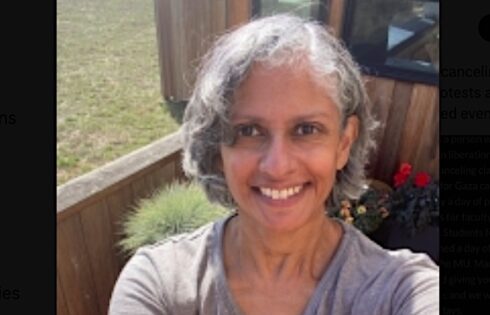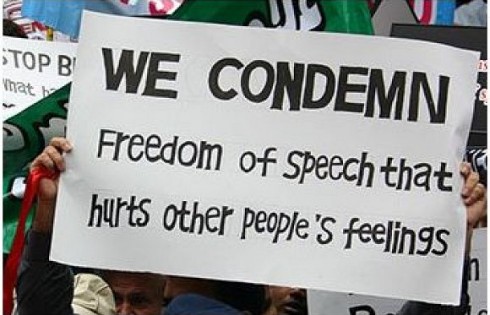
Led by legendary coach Amos Alonzo Stagg, my University of Chicago Maroons were among the football giants in the pre-Depression era. Monsters, actually, as the Maroons were termed the “Monsters of the Midway” well before the NFL’s Bears adopted the catchline. Stagg was one of football’s great innovators, claiming credit for things as mundane as the huddle. Toward the end of the era, Chicago possessed the Heisman Trophy’s first recipient, Jay Berwanger.
But in 1939, after several years in the Big Ten cellar, University President Robert Maynard Hutchins (according to legend) declared “Whenever I feel the need to exercise, I lie down until the feeling passes” and cut the football program. Football, for Hutchins, was “a major handicap to education in the United States.”
In 1969 the football program was brought back, this time at the Division III level. Division III schools offer no athletic scholarships, do not consider sports revenue-generators, and do not endow athletic programs. Division III is the least competitive and least expensive division of the NCAA. And yet the Division III football season culminates in a sixteen-team playoff.
The Division I (FBS) football season will end tonight with a terrific match-up. Auburn quarterback, Cam Newton, who is just as dominant as he is controversial, will try to match point-for-point an Oregon Ducks’ offense that is futuristic and gaudy—like their Nike uniforms. Throw in the sort of red-blue culture clash of fans from Auburn, Alabama and Eugene, Oregon that is the stuff of David Brooks’ columns and you have a uniquely compelling game. An ideal capstone.
At the same time, the Texas Christian Horned Frogs—perhaps the most balanced team in the country—will gather in Fort Worth tonight and watch the game knowing that the game’s winner will join TCU as the two teams with perfect seasons. The Stanford Cardinal think they deserve another crack at Oregon, after all they are a much better team than they were when they lost three months ago. Other schools that dropped one or two games have similar imaginings. In no other team sport is the margin of error so thin. More importantly, in no other sport does so much rest on hypothesis, musings, projections, and strange formulas. Sport is strong medicine for self-confident projectors. Who can know how Texas Christian would fare with Auburn’s schedule? How would Stanford do in a rematch with Oregon? Could Ohio State stop Cam Newton?
The what-ifs, while present in any sport, predominate the discussion of college football. The lack of a playoff impels an imaginary asterisk on the records of many champions. If sports give us witness to a certain type of excellence, the ambiguity of the current system nullifies the excellence we seek to witness. A championship playoff would give coaches, players, and fans a better idea of who is truly excellent.
Oregon and Auburn deserve our marvel. They are by most estimation the two best teams in the country. But a number of other teams have earned the right this season to prove their mettle—to possibly prove that estimate incorrect.
The objections to a playoff are numerous. Some allege that a playoff with, say, eight teams and three weekends, all on neutral sites, would make it financially impossible for alumni bases to travel to every game. This is more of an argument against neutral sites.
Others like the bowl system because half of the teams get to end their season with a victory. The desire for affirmation in amateur athletics is probably a lame excuse. After all, most high schools and all other college divisions have playoffs. There are reasonable concerns about over-taxing athletes who are (most of the time) unpaid workers. The system could get around this, perhaps shortening the season by a game.
In many ways the real objection is financial. This is why the bowls with the highest payout often pass on superior teams with less avid fan bases for inferior teams with more avid fan bases. This is unconvincing. There would be greater television revenues for the seven playoff games than for the seven largest bowls as more fans would be invested in each game. Greater television revenues could make up for (unlikely) losses in attendance and (more likely) losses in corporate sponsorships. If there are thirty-five bowl games and only eight teams are taken into the playoff, there could still conceivably be 31 revenue-generating bowl games.
Although it might not be the primary argument of playoff opponents, the best argument against a playoff is Hutchins’s. A playoff, the argument goes, could become a “handicap to education”—what serious people agree is the goal of a university.
Extending the season could take student-athletes away from their studies, thus exacerbating an already difficult balance. Under the current system, most teams wrap-up the season before finals and play their bowl game before classes resume in January. Players often spend their entire break, even sometimes missing Christmas with their families, to prepare for a bowl game. Yet the current system plays seven bowl games after the first day of classes at many universities. Classes started last Monday at the University of Oregon, meaning that all the players on the Ducks’ roster will miss at least 15 percent of their quarter.
This current problem would not be fixed by a playoff, but it would not be worsened. Starting the playoffs a week after most finals end would likely place the championship game around the same time as it is now. A sixteen team playoff would interrupt January classes or finals and should not be implemented. An eight team playoff, however, need not “handicap education” — unless the current system does.
If the Tigers and Ducks played this game after first beating, say, Stanford and TCU, the story lines would all be the same, the enticing 73 point over/under would be unchanged, but the path that brought either a championship would be unquestionable. Only Robert Maynard Hutchins would yawn at that.
Jeremy Rozansky is the editor of the Counterpoint. He is a member of the Student Free Press Association.
Like The College Fix on Facebook / Follow us on Twitter




Please join the conversation about our stories on Facebook, Twitter, Instagram, Reddit, MeWe, Rumble, Gab, Minds and Gettr.